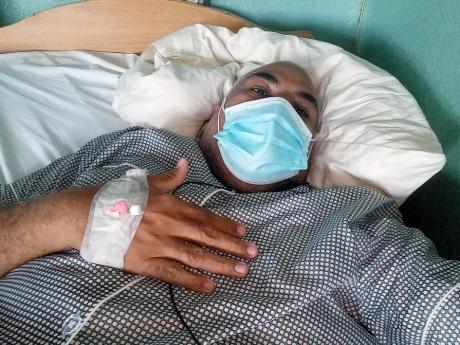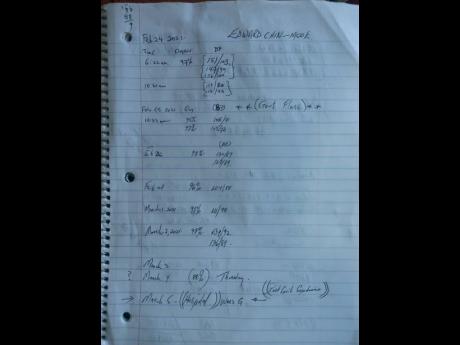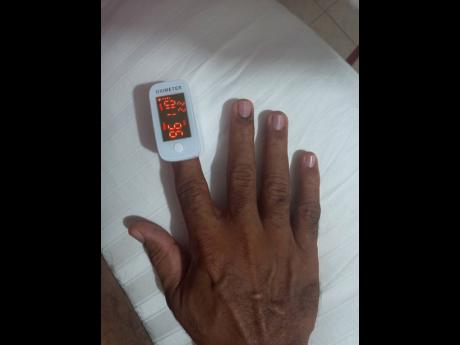The tiny weapon in war against COVID-19
Prior to the pandemic, pharmacist Dr Ernestine Watson said it would take months to sell three oximeters, but now it’s taking a week to sell 10 of the devices that measure blood-oxygen levels. “Almost every day we are having requests for oximeters...
Prior to the pandemic, pharmacist Dr Ernestine Watson said it would take months to sell three oximeters, but now it’s taking a week to sell 10 of the devices that measure blood-oxygen levels.
“Almost every day we are having requests for oximeters, and what I find is that when persons buy, they buy two,” she said.
Watson, the immediate past president of the Pharmaceutical Society of Jamaica, believes the small device, which retails for $4,000 upwards, has been crucial in the care of COVID-19 patients whose respiratory system is compromised.
“What happens is that sometimes, especially for persons who are stronger, the only way you can determine when the oxygen saturation is falling is by actually testing it,” she said.
“Sometimes it is a precipitous, abrupt fall for some people.”
That was the case for Edward Chin-Mook, who was first diagnosed with COVID-19 in February following persistent coughing. After his initial diagnosis, he received treatment at the National Chest Hospital for about a week as a CT scan showed that he had bilateral pneumonia.
“By this time, I was breathing short. From there, I got blood thinners, I got antibiotics, and I was given several medications,” recounted Chin-Mook, president of the Caribbean Association of Small and Medium Enterprises.
Based on Chin-Mook’s improvement, he was sent home on February 23.
“When I came home and was quarantined, one of the instructions I got from my doctor was that I needed to take my daily stats,” he said.
Chin-Mook checked his blood oxygen level using the oximeter.
“My oxygen level was 97 every day since I was released from the hospital, but all of sudden on March 4 when I got up and my wife, who is my nurse here, did the oxygen level, it was 88.
“So I said to her, ‘No, man, it look like the battery dead!”
After making contact with his doctor, Chin-Mook was readmitted to National Chest Hospital, where he was immediately put on blood thinners and oxygen.
They suspected he had developed blood clots and he was a bit anxious after hearing the news.
“All this time, truth be told, we had a couple persons dying on the ward,” he said.
This included the lady in the bed directly beside him.
After more than a week of treatment, Chin-Mook is now out of the hospital and is required to take blood thinners for the next three months. He now encourages Jamaicans to take zinc and vitamins C and D3 supplements and to invest in an oximeter, even if they are asymptomatic after a positive COVID-19 test.
“If you don’t know what your oxygen level is, you might just go back home and think everything is OK,” he warned.



